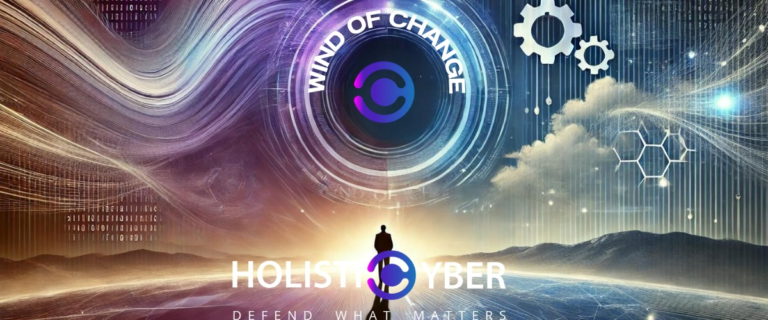The Paris Olympics will captivate global attention for several weeks this summer. As the world’s top athletes gather to showcase their skills, cybercriminals are gearing up to capture valuable digital prizes as well.
Just like synchronized swimmers work together to create a flawless performance, your organization’s cybersecurity efforts require coordination, precision, and seamless teamwork. Major events like the Olympics present prime opportunities for cyberattacks, and even if your company isn’t directly involved in the summer games, you could still be at risk. Now is the time to shore up your defenses and strengthen your cyber posture.
Here’s what CISOs need to be aware of during the summer games and our advice on how to protect their organizations.
Understanding an Olympic Sized Threat
“The historical data shows that events like the Paris Olympics attract heightened cyber threat activity,” says Shay Zandani, former CISO and current Holistic Cyber account executive. “Cybercriminals seeking global attention or an opportunity to exploit will leverage the increased digital traffic to launch sophisticated attacks aimed at valuable data and infrastructure. Now is the time to examine your current practices and implement or enhance monitoring strategies to proactively identify and mitigate vulnerabilities before they can be exploited.”
Historical Data and Trends: There’s a direct link between major sporting events and a surge in cyberattacks. According to NTT, the organization responsible for security of the 2021 Tokyo Olympics, there were over 450 million cyber security events.
Additionally, during the opening ceremony of the 2018 Pyeongchang Winter Games, a computer virus known as “Olympic Destroyer” disrupted IT systems at the Pyeongchang Winter Games, affecting the internet, broadcasting and ticketing systems.
Who’s at Risk: Even if your company isn’t directly associated with the Olympics, it can still be vulnerable. Industries as varied as automotive manufacturing, technology and entertainment have been targeted in the past. Threat actors are looking to capture headlines during the games, either to attract attention to their cause, or cause terror and disrupt the games. They often look for high-profile victims to maximize their exposure, even if there’s no obvious direct link between the company and the Olympics.
Specific Threat Agents
“During periods of heightened risk, it’s crucial to have multiple layers of defense, much like the layers of an onion. Blocking activities from specific countries and closely monitoring unusual activity on your network can help mitigate the risk. It’s also essential to maintain clean backups and ensure employees are vigilant against phishing attempts, especially when they might be more susceptible, such as when streaming Olympic events,” says Zandani.
Holistic Cyber Suggests Proactive Measures to Protect Your Organization
- Block and Monitor Activities:
- Geographic Filtering and Enhanced Monitoring: Consider implementing blocks on activities from specific high-risk countries, such as Russia, China, North Korea, and Iran. If you don’t regularly do business with France, you may want to put a temporary block on activity originating from there as well. If you do business with these regions, increase your monitoring levels.
- Illegal or Unofficial Event Streams: During major events like the Olympics, employees may seek to watch the games or stay updated on news through illegal or unofficial streams. These streams can pose significant cybersecurity risks, as they may be infected with malware or used as entry points for cyberattacks. It’s crucial for organizations to block access to such streams on work computers and endpoints to mitigate the risk of exposing their networks to malicious activities.
- Heightened Awareness:
- Connect the Dots: Pay extra attention to seemingly minor issues that could be part of a larger attack. Small, isolated incidents like unusual login attempts, unexpected vendor assistance, or minor system glitches might be early indicators of a coordinated cyber attack. By recognizing and investigating these small anomalies, you can uncover potential threats before they escalate. Training your team to identify and report these minor red flags is crucial in preventing larger security breaches.
- Vendor Scrutiny: Be cautious of vendors offering unsolicited advice or help, especially during sensitive times. Trust but always verify.
- Robust Controls:
- DDoS Attack Preparedness: Ensure your systems are fortified against DDoS attacks, which may increase during this time.
- Clean Backups: Maintain up-to-date backups that are secured and regularly tested.
- Employee Vigilance: Educate employees about phishing campaigns and other common ways threat actors may seek to exploit human vulnerabilities.
- Increased Penetration Testing and Consulting Services:
- Regular Pentesting: Schedule additional penetration tests to identify and remediate vulnerabilities before they can be exploited.
- Consulting Services: Engage with cybersecurity consultants to review your security posture and implement best practices tailored to the heightened threat environment.
- Phishing Exercises – Conduct simulated phishing exercises to test employee awareness and response to phishing attacks, and review the results with the team.
The Bottom Line
Major events like the Paris Summer Olympics draw the attention of cybercriminals looking for publicity and sensitive data. By understanding the risks and taking proactive measures, including increased pentesting and consulting services, CISOs can protect their organizations from becoming an unintended victim during the upcoming Paris summer Olympics.
Stay vigilant and remember: You don’t have to be in Paris to feel the heat.






